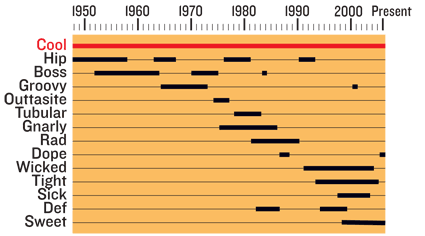Occupying Word Street
October 14, 2011
By Ben Zimmer The public protest over economic inequalities known as "Occupy Wall Street" has been going on nearly a month now, with the original demonstration in Manhattan's Financial District spreading to cities around the world. Thanks to the success of the movement, the lingo of the protesters has spread quickly, with the verb occupy in particular becoming a kind of rallying cry.
Occupy and occupation first became part of the language of protest in September 1920, when factory workers in Italy held strikes against working conditions. About 600,000 workers took control of the factories, and the movement was known in Italian as l'occupazione delle fabbriche, or "the occupation of the factories." The earliest evidence in the Oxford English Dictionary for the relevant senses of occupy ("to gain access to and remain in...without authority, as a form of protest") and occupation ("the action of occupying a work place, public building, etc., as a form of protest") come from reports of the 1920 Italy protests. Another term for protest-style occupation, the sit-in, has been in use since 1937, though it really took off in the '60s, along with such spin-offs as the teach-in and the be-in.
Occupy Wall Street has its origins in a call for action on July 13 by Adbusters Media Foundation, an anti-consumerist group of "culture jammers" based in Vancouver. "On September 17," the announcement read, "we want to see 20,000 people flood into lower Manhattan, set up tents, kitchens, peaceful barricades and occupy Wall Street for a few months." Adbusters made an explicit analogy to the protests of the Arab Spring, asking, "Are you ready for a Tahrir moment?" That's a reference to Cairo's Tahrir Square, the focal point of Egypt's anti-Mubarak protests. Another group involved with the planning of the September 17 protest dubbed it the U.S. Day of Rage.
As with many other grassroots movements these days, Occupy Wall Street got the word out via social networking sites, such as Facebook, Twitter, Tumblr, and Meetup. On Twitter, the hashtag #occupywallstreet circulated in the leadup to September 17, often shortened to #ows. Protesters dug in for the long haul by taking over Zuccotti Park, a privately owned park not too far from Wall Street. (Zuccotti Park was originally known as Liberty Plaza Park, and the OWS crowd has tended to call it "Liberty Park.") As news spread of OWS, similar protests sprang up in other cities around the country, going by the labels Occupy Boston, Occupy Philly, and so forth. The website Occupy Together became a hub for coordinating the demonstrations in the U.S., while activists in cities around the world followed suit. Of course, there have also been parodies, like Occupy Sesame Street.
The demonstrators usually call themselves occupiers, though they've also been called occupants or even occupationistas. And with the growth of the movement, the verb occupy no longer requires "Wall Street" or any other object to follow it. About a week after the OWS demonstration began, in late September, people were already talking about "the Occupy protests" and "the Occupy movement." In a newspaper created for OWS, the Occupy Wall Street Journal, a list of "5 Things You Can Do Now" begins with #1: "Occupy! Bring instruments, food, blankets, bedding, rain gear, and your friends." To occupy can now be used as an intransitive verb meaning to take part in the Occupy protests. (Naturally, the hashtag #occupy has taken off on Twitter in recent weeks.)

Beyond the talismanic power of occupy, other words and phrases have become firmly linked to the movement. One popular slogan, "We are the 99%," began as a Tumblr feed with the message, "We are getting nothing while the other 1 percent is getting everything." The "99 percenters" have been met by the "53 percenters," conservatives who instead focus on the 53 percent of households that pay federal income tax.
At the center of the action, in Zuccotti Park, the leaderless (and some would say message-less) protesters have developed their own terminology and practices for their experiment in "participatory democracy." At the OWS "general assembly," participants have overcome the ban on amplified sound by using what has been dubbed "the human microphone" or "the people's mic": after a speaker says a few words, those nearby repeat what was said in unison. Then those a bit further away repeat what the first group said, amplifying the message across the entire crowd. To register approval for a point under discussion, the occupiers use a hand-signal system that has been called "jazz hands" or "twinkling": those in agreement wave their hands with fingers pointed upward in silent applause. This hand-signal system has been used in the past by grassroots groups in Europe, such as Seeds for Change and Climate Camp.
As the protests continue to spread around the world (Occupy protests are scheduled to take place in 25 countries on October 15), the political impact becomes more profound, as does the linguistic impact. If the movement does have lasting consequences, we could be looking at occupy as a strong contender for the 2011 Word of the Year.
Update: You can hear more of my thoughts about the word occupy on the National Public Radio show "On the Media."
Source: http://www.visualthesaurus.com/cm/wordroutes/3001/?utm_source=rss


